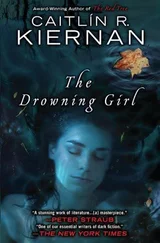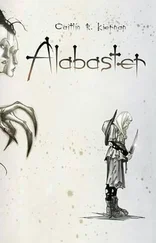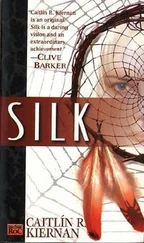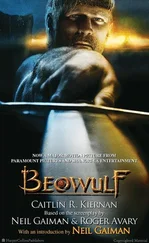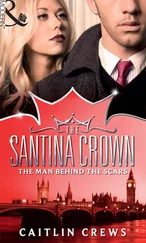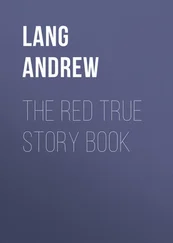Caitlin R. Kiernan - The Red Tree
Здесь есть возможность читать онлайн «Caitlin R. Kiernan - The Red Tree» весь текст электронной книги совершенно бесплатно (целиком полную версию без сокращений). В некоторых случаях можно слушать аудио, скачать через торрент в формате fb2 и присутствует краткое содержание. Жанр: Ужасы и Мистика, на английском языке. Описание произведения, (предисловие) а так же отзывы посетителей доступны на портале библиотеки ЛибКат.
- Название:The Red Tree
- Автор:
- Жанр:
- Год:неизвестен
- ISBN:нет данных
- Рейтинг книги:3 / 5. Голосов: 1
-
Избранное:Добавить в избранное
- Отзывы:
-
Ваша оценка:
- 60
- 1
- 2
- 3
- 4
- 5
The Red Tree: краткое содержание, описание и аннотация
Предлагаем к чтению аннотацию, описание, краткое содержание или предисловие (зависит от того, что написал сам автор книги «The Red Tree»). Если вы не нашли необходимую информацию о книге — напишите в комментариях, мы постараемся отыскать её.
The Red Tree — читать онлайн бесплатно полную книгу (весь текст) целиком
Ниже представлен текст книги, разбитый по страницам. Система сохранения места последней прочитанной страницы, позволяет с удобством читать онлайн бесплатно книгу «The Red Tree», без необходимости каждый раз заново искать на чём Вы остановились. Поставьте закладку, и сможете в любой момент перейти на страницу, на которой закончили чтение.
Интервал:
Закладка:
The ground made a soft, squelching sound beneath my sneakers, and I slipped once or twice, almost falling. I hastily looked over the contents of the shelf nearest the archway, which held very little besides row after row of ancient canned goods (mostly cucumber pickles, I think, but the fuzzy clots of mold in the jars made it hard to be sure) and disintegrating bales of The Farmer’s Almanac and Field and Stream . I paused, shining my light north, towards the place where the darkness ought to have ended in another wall, probably earthen. But the batteries were getting weak, and the beam would not penetrate that far, however far that might be. And this is when I saw the grimy chifforobe missing all its drawers, sitting just a few feet farther in, and on top of it was a cardboard box, not so different from the manuscript boxes I get from Staples or Office Depot. I grabbed it, suddenly wishing to be anywhere at all but that slimy hole in the world, wanting to be outside, beneath the summer sun again. Better the sweat and glare and stifling, relentless heat than that clinging damp and darkness. I tripped climbing the stairs and have a nice yellow-green bruise on my left shin to show for it. I’m sure, if Amanda had a soul, and if it somehow survived her body, she was cackling at panicked, fraidy-cat me from whichever afterlife or underworld she’s consigned herself. I bolted the basement door behind me, and sat down on the floor. I actually kicked the cellar door hard, two or three times, leaving muddy footprints that I’m gonna have to wash away. I thought for a moment I was going to knock the goddamned thing off its hinges. It was all anger, the force behind those kicks — anger at my own kid fears and my memories and Amanda’s suicide and the goddamn overdue novel I’m not getting written. I lay on the floor a while, grateful for the muggy kitchen, the stagnant air that did not stink of mold. I lay there until my heart stopped racing. And then I sat up and looked inside the box.
It was taped shut, but most of the adhesive had dried out long ago, and I didn’t need a knife to get it open. Inside was page after page of the same onionskin paper I’d found in the Royal’s carriage, and so there I was, returned fucking victorious from my own personal katabasis, Hecate back from the bloody bowels of hell with rescued Persephone, what the fuck ever. I’d done the deed, and now I held the prize, and seeing it there, my fury quickly, calmly, melted away. Not caring that my dirty fingers would leave smudges, I lifted the first page from the box, and then the second, and then the third, reading over them as quickly as I could. After maybe ten or fifteen minutes, I finally had the presence of mind to get up and carry the box to the kitchen table, where, after half a decade, I reunited it with Harvey’s typewriter.
I got a beer from the refrigerator (because, already, the heat was feeling a lot less welcome than I’d imagined it would be while I was still in the basement) and then sat down to reread, more carefully, those first few pages. The first was simply a title page — THE RED TREE by Dr. Charles L. Harvey and all that. The usual. The second page was occupied by two epigraphs, one from Thoreau, the other from Seneca the Elder. Neither meant very much to me, but perhaps they will later, once I’ve had a chance to get through the manuscript. The third page was blank, but the fourth bore the heading — CHAPTER ONE: THE CURSED ACORN — only THE CURSED ACORN was crossed out , and a string of question marks had been scrawled in directly above it in red ink. I sat there, sipping at my beer, the amber bottle perspiring and growing slick in my hand. Despite the things I’d read online, nothing here, before me, pointed to Harvey’s unfinished book being a study of regional “fakelore.” Rather, it looked to be concerned with local traditions regarding a tree on the plot of land now known as the Wight place. What’s more, it quickly became evident that this tradition amounted to stories of murder, witchcraft, lycanthropy, cannibalism, and a miscellany of other unpleasantries, dating back to the first decade of the Eighteenth Century. Scanning those thin, hand-corrected pages, the typescript and Harvey’s annotations, I got goose bumps — swear to fuck, I truly did — and found myself pausing repeatedly to glance out the window at the farmland gone fallow and brushy, the oaks and pines pressing in around the dark expanse of Ramswool Pond.
Hardly the sort of shit you advertise when you’re trying to rent out a house, indeed.
Jesus fuck, the goddamn nightmares. Screw the seizures. Please just give me a pill for these goddamned bad dreams. I awoke from one about fifteen minutes ago, and stumbled out here from the bedroom for a drink (bourbon, yes, but I did cut it with water). I stood at the big window in the den for a few minutes, watching the eastern sky. The birds are awake and chittering away in the trees and bushes, and I know the sun will be along before too much longer — already, the sky is lightening — but the way I feel right now, soon can’t come soon enough. Maybe it won’t be so bad having someone else in the house, even an artist from California. Even if she’s straight.
So, yeah, here I sit, typing on Harvey’s Royal after a measly four hours’ sleep. Not sleeping is one of the triggers; for the fits, I mean, so this can’t become a habit. I have to sleep, bad dreams or no bad dreams. I have to sleep, but I just couldn’t stay in bed after that, couldn’t say “Fuck it” and pop another Ambien. I need to be awake. I need to be awake and in this world. And I think I really am going to write down what I can recall about the dream, with the dimmest hope that it will loosen its grip on me. I know I am awake now, and not merely stranded in some mundane intermission between one terror and the next. I know the sun is coming. I know I can get a nap later, when the day is all around me, and I don’t have to go back down to sleep beneath the starry canopy of the fucking night.
It’s another oft-cited, so-called weakness of my writing, by the way. All the dream sequences. The “reliance” on dream sequences, and, some of the stuff I’ve seen said, you’d think I’d invented the blasted things. As though the reviewers (and here I refer particularly to those self-styled reviewers who leave comments at Amazon and suchlike) have managed to get through high school and college (big assumption here, I admit) without ever encountering such a basic narrative technique. Let them pick on Pushkin or Shaw or Mary Shelley or goddamn Shakespeare and leave my sorry midlist ass the hell alone. I’ve actually had my agent suggest that my novels would come across as more accessible and I might increase my readership if I avoided so many dream sequences. And I am appalled at authors and critics alike who brand the use of dreams in fiction as a “cheat,” used only by writers who cannot “figure out,” in a waking narrative, some other means of saying what he or she has to say.
This attitude denies so much of. yes, I have digressed, and I am on my goddamned soapbox. But, honestly, honestly. I have lost track of the times readers have complained that they couldn’t follow the “story” because they weren’t clear what was “really happening” and what was “only” a dream. Right now, from where I fucking sit, it’s all a dream, marked by varying degrees of lucidity. Get with the program or stick to television (though, it must be noted that film and TV rely very, very heavily on dream sequences, so you’d think — if for no other reason — the lowest common denominator would have long since become accustomed or desensitized or whatever to writers employing dreams to expand and further the story). Whatever. I did not sit down here to complain about readers who cannot be bothered to be literate. Yeats said (and this one I know from memory, and let it stand as my sleep-addled defense, if any defense is needed):
Читать дальшеИнтервал:
Закладка:
Похожие книги на «The Red Tree»
Представляем Вашему вниманию похожие книги на «The Red Tree» списком для выбора. Мы отобрали схожую по названию и смыслу литературу в надежде предоставить читателям больше вариантов отыскать новые, интересные, ещё непрочитанные произведения.
Обсуждение, отзывы о книге «The Red Tree» и просто собственные мнения читателей. Оставьте ваши комментарии, напишите, что Вы думаете о произведении, его смысле или главных героях. Укажите что конкретно понравилось, а что нет, и почему Вы так считаете.

